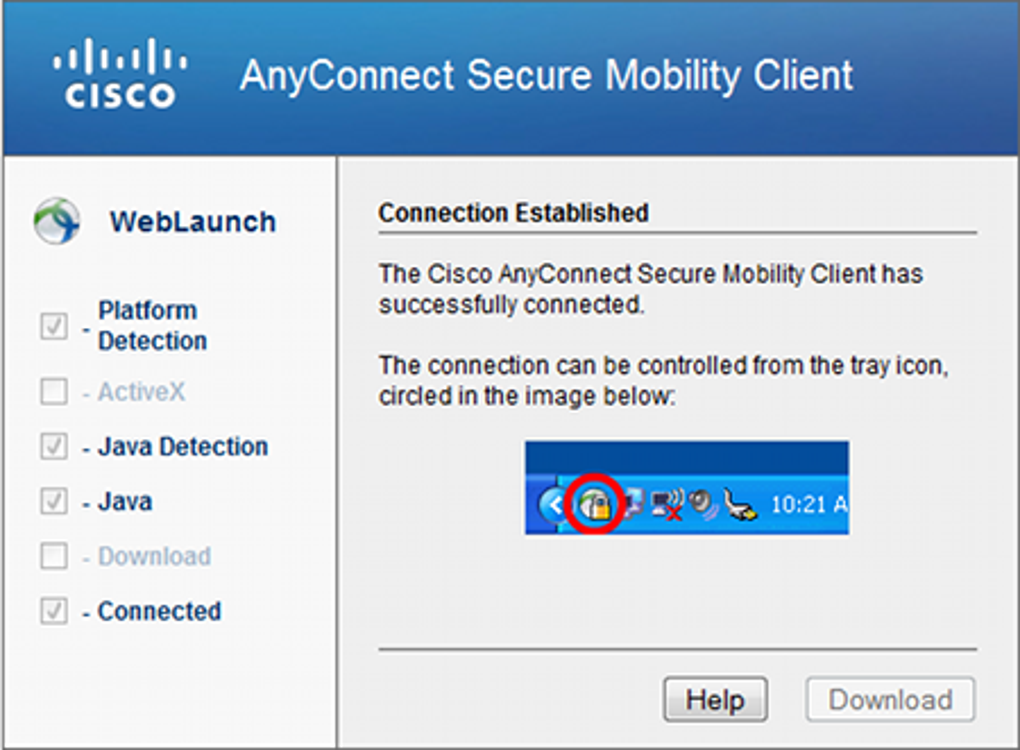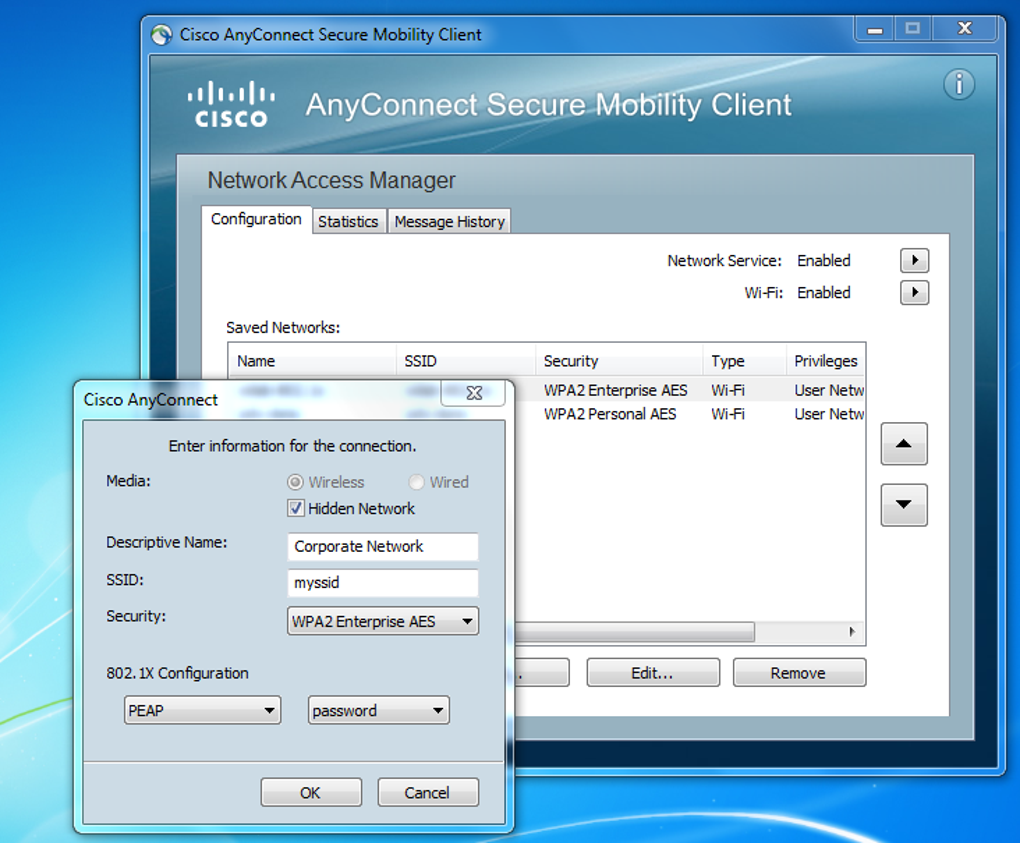Cisco AnyConnect Secure Mobility Client is a robust and feature-rich VPN client primarily designed for enterprise environments. It facilitates secure remote access for employees, allowing them to connect to corporate networks from various devices and locations while maintaining a high level of security and data protection. This guide delves into the key aspects of Cisco AnyConnect, exploring its functionality, features, benefits, alternatives, and potential drawbacks.
Understanding Cisco AnyConnect’s Core Functionality
At its heart, Cisco AnyConnect acts as a secure gateway, providing encrypted connections between user devices and corporate networks. This protection extends beyond simply encrypting data in transit; it encompasses a multifaceted approach to network security. The client integrates with the Cisco AMP (Advanced Malware Protection) platform, offering robust threat prevention capabilities at the endpoint level. This means it not only secures the connection but also actively works to prevent malware and other threats from compromising the user’s device.
The software goes beyond basic VPN functionality by offering granular control over network access. Administrators can meticulously define which endpoints and networks can establish connections, significantly enhancing security posture and minimizing vulnerabilities. This granular control extends to user authentication, leveraging technologies like IEEE 802.1X for robust authentication, accounting, and authorization (AAA). This triple-A approach ensures only authorized users with verified identities can access the network.

Beyond its security features, Cisco AnyConnect provides detailed network usage data. Administrators gain insight into network activity, identifying potential security risks, problematic user behaviors, and network vulnerabilities. This valuable data allows for proactive security management and facilitates rapid responses to malware attacks or data breaches. The integration with other Cisco products further enhances data sharing and centralizes security management across various platforms.
Key Features and Benefits of Cisco AnyConnect
Cisco AnyConnect boasts a wide array of features that cater to both security and usability needs. Here are some of its standout features:
-
Secure Connections: The client provides robust encryption using protocols like IPsec IKEv2 and SSL, ensuring the confidentiality and integrity of data transmitted between the user’s device and the corporate network. This encryption protects sensitive information from unauthorized access, even on public Wi-Fi networks.
-
Multi-Factor Authentication (MFA): Cisco AnyConnect supports MFA, adding an extra layer of security beyond simple password authentication. This can involve using one-time passwords (OTPs), biometric authentication, or other methods, making it significantly harder for unauthorized individuals to gain access.
-
Endpoint Security: The integration with Cisco AMP provides real-time threat protection. The client actively monitors endpoint devices for malware and other threats, preventing them from entering the network or causing damage. This proactive approach significantly reduces the risk of security breaches.
-
Centralized Management: Administrators have a centralized dashboard to manage user access, monitor network activity, and enforce security policies. This streamlined approach simplifies network management and enhances overall security efficiency.
-
Automatic Reconnection: The client automatically re-establishes the VPN connection if it’s dropped due to network issues or other unforeseen circumstances. This ensures uninterrupted connectivity and minimizes disruptions to the user’s workflow.
-
Customization Options: Cisco AnyConnect offers extensive customization options, allowing administrators to tailor the client to their specific network requirements. This adaptability makes it suitable for a wide range of enterprise environments.
-
Cross-Platform Compatibility: The client is available for various operating systems, including Windows, macOS, Linux, iOS, and Android. This cross-platform compatibility ensures consistent security and access across all devices within the organization.
-
Detailed Reporting: The client generates detailed reports on network usage, security events, and user activity. This comprehensive reporting allows administrators to track network performance, identify security trends, and make informed decisions to improve network security.
Deployment and Administration of Cisco AnyConnect
Deploying and managing Cisco AnyConnect typically involves a few key steps:
-
Installation: The client is downloaded and installed on each user’s device. This process is straightforward and generally requires minimal technical expertise.
-
Configuration: Administrators configure the client to connect to the corporate network using the appropriate VPN settings and security protocols. This configuration may involve setting up VPN profiles, defining access control policies, and configuring authentication methods.
-
User Management: Administrators manage user accounts and permissions, ensuring only authorized individuals can access the network. This often involves integrating AnyConnect with existing directory services like Active Directory.
-
Monitoring and Reporting: Administrators monitor network activity, user access, and security events to identify potential problems and enforce security policies. This continuous monitoring is essential to maintaining a robust and secure network environment.
-
Updates and Maintenance: Administrators keep the client updated with the latest security patches and bug fixes to ensure optimal performance and security. Regular updates are critical to addressing potential vulnerabilities and enhancing security.
Alternatives to Cisco AnyConnect
While Cisco AnyConnect is a powerful and comprehensive solution, several alternatives exist, each with its strengths and weaknesses. The best alternative depends on specific needs and priorities. Some popular alternatives include:
-
OpenVPN: An open-source VPN solution offering high flexibility and customization. It’s a popular choice for users who require a high degree of control over their VPN configuration.
-
StrongSwan: Another open-source VPN solution known for its robust IPsec implementation. It’s often preferred in environments requiring strong security and interoperability.
-
WireGuard: A modern VPN technology known for its speed and simplicity. It’s gaining popularity for its ease of use and performance advantages.
-
NordVPN, ExpressVPN, Surfshark (and others): While primarily geared towards individual users, several commercial VPN providers offer robust security and functionality. These are often easier to use than enterprise-level solutions but may lack the granular control and centralized management capabilities of Cisco AnyConnect. These are better suited for individual users rather than enterprise environments needing strict control.
The choice between Cisco AnyConnect and an alternative depends heavily on the specific requirements of the organization. Cisco AnyConnect excels in large enterprise environments requiring centralized management, granular control, and strong security features integrated with other Cisco products. However, alternatives might be preferable for smaller organizations or individuals prioritizing ease of use or specific technical requirements.
Conclusion: Cisco AnyConnect – A Powerful Tool with Trade-offs
Cisco AnyConnect Secure Mobility Client is a powerful and versatile VPN client, offering robust security, centralized management, and extensive customization options. Its integration with the Cisco AMP platform and support for multi-factor authentication greatly enhance its security capabilities. The comprehensive reporting features provide valuable insights into network activity, enabling proactive security management.
However, Cisco AnyConnect’s complexity can be overwhelming for less technically proficient users. The extensive configuration options and advanced features require a certain level of technical expertise. Organizations should carefully consider their technical capabilities and user base before deploying Cisco AnyConnect. Alternatives exist offering simpler interfaces and easier management, which might be preferable for smaller organizations or individuals. Ultimately, the ideal VPN solution depends on specific needs, technical proficiency, and budget.

File Information
- License: “Free”
- Version: “4.10.08029”
- Latest update: “February 4, 2025”
- Platform: “Windows”
- OS: “Windows 10”
- Language: “English”
- Downloads: “525.2K”
















